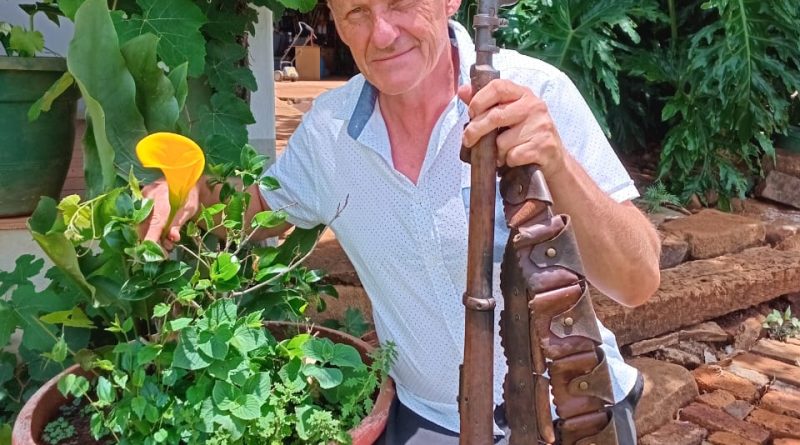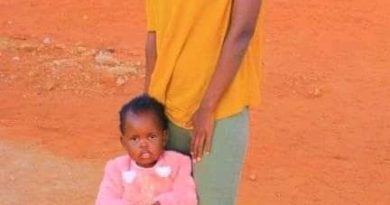Thato Mashele Gunning for Roossenekal’s Heritage Knowledge
ROOSSENEKAL
A small town of Roossenekal, steeped in history and nestled in the foothills of the Mapoch Caves located in Elias Motsoaledi Local Municipality (EMLM), has found a new advocate for its heritage.
Thato Mashele, a 20-year-old hailing from Marulaneng Village outside Jane Furse, is making her mark as a passionate and dynamic young historian.
Mashele, a former participant in the Presidential Employment Stimulus Programme (PESP3) under the Sekhukhune Community Television Initiative (SkCTV), has continued her journey to uncover and document history even after her term ended in June 2024.
Her efforts recently led her to Pastor Marcus F. Basson, a revered local heritage custodian and preacher, who welcomed her into his world of antique artifacts and untold stories.
Pastor Basson, a fervent heritage activist, has been collecting artifacts of historical significance, with plans to establish a community-based museum in Roossenekal.
Among his prized possessions is an 1896 British military bayonet in pristine condition, accompanied by a heartfelt inscription from its original owner, Herklaas Stefanus Bouer:
“Date: 1896-12-17. To my son, while we are fighting the British (Kakies) with our blood and sweat to build a nation. May this be your light and protection.”
Other artifacts in his collection include a 1906 bullet belt and a spear currently under investigation. Holding these relics, Mashele felt a deep connection to the town’s layered history and its implications for the present.
Roossenekal’s historical significance is multi-faceted, reflecting the narratives of the Ma-Ndzundza Ndebele, Bapedi, English, and Voortrekkers.
“This town is a product of diverse histories,” Mashele remarked, aligning her views with Pastor Basson’s vision of a museum that celebrates the town’s inclusive heritage.
Roossenekal’s challenges, however, are stark. With a population of 32 000 residents, the town grapples with high unemployment rates nearing 70%, widespread dependency on social grants, and economic hardships that contribute to crime. Yet, its cultural riches remain a beacon of hope, ripe for transformation into a tourism-driven economy.
Mashele’s exploration also delved into the legendary Mapoch Caves, a site east of Roossenekal, where the Ma-Ndzundza Ndebele found refuge in the 1840s under King Maboko.
The caves, surrounded by dense growth and deep ravines, provided a natural fortress against invaders. The site also tells the story of Ingwenyama Nyabela, the Ndebele king who protected Mampuru, the stepbrother of King Sekhukhune, after Mampuru assassinated the king. This act of solidarity, despite intense political pressure, adds another layer to the complex history of the region.
Today, Mapoch Caves stand as a symbol of resilience and are complemented by the natural beauty of the surrounding area, including its diverse flora, such as spectacular aloe specimens.
Mashele’s journey has not only deepened her appreciation for Roossenekal’s history but also inspired her to write a book exploring the heritage of Roossenekal and Leolo. She envisions contributing to the establishment of the museum, hoping it will serve as a tool for education, cultural preservation, and economic development.
“I see the museum as more than a building. It’s a bridge to our past and a gateway to a brighter future for Roossenekal,” Mashele said.
With its proximity to the newly completed De Hoop Dam, Roossenekal is strategically positioned to attract visitors. The dam offers recreational opportunities like hiking, fishing, and camping, complementing cultural tourism cantered around Mapoch Caves and the town’s Yellow Arum Lily Festival venue held each November.
Mashele’s dedication and collaboration with Pastor Basson exemplify how individuals can drive community transformation through heritage preservation. As the town navigates its challenges, it is young leaders like Mashele who embody its potential to rise above adversity, anchored in the strength of its storied past.




